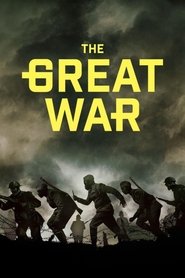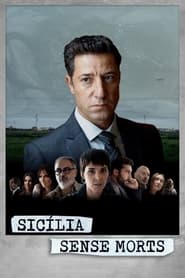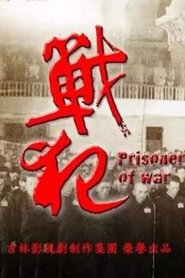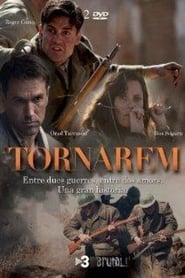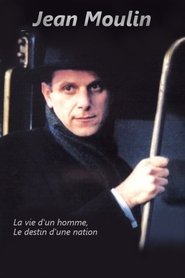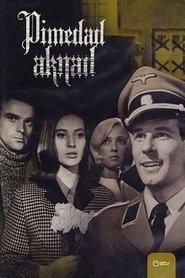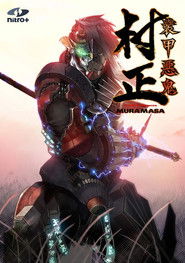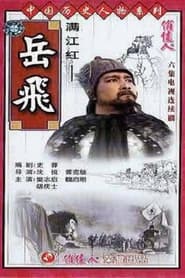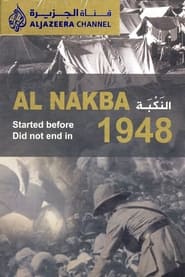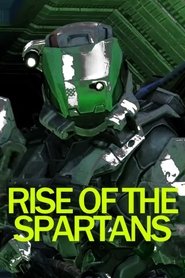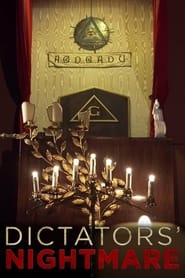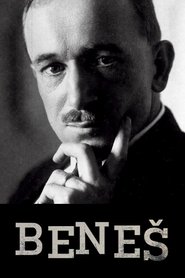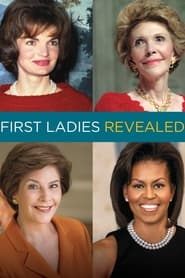Popular War Politics TV Series on Pantaflix - Page 108
-
The Great War
2024
The Great War
2024
A four-hour cinematic documentary covering U.S. involvement in World War I in the critical year of 1918. After three years of horrific battle in the trenches of France and Belgium, the Allies are on the verge of collapse—and Germany the cusp of victory. The United States is forced to rapidly train, arm, and ship millions of young soldiers overseas to Europe for the first time. -
Sicília sense morts
2022
Sicília sense morts
2022
-
Napoleon: The Russian Campaign
2015
star 5.7This docudrama revisits one of the most astounding military campaigns and defeats in history, Napoleon's attempted invasion of Russia. -
Kisah Sembilan Wali
2012
-
戰犯
2018
戰犯
2018
-
The Heart in the Well
2005
April 1945. The German army is losing the war and Tito's Yugoslav partisans are rapidly gaining ground. -
Tornarem
2012
-
Il prato delle volpi
1990
Il prato delle volpi
1990
The story of a boy during World War II. The son of an Austrian mother and Italian father, he is forced to take refuge in the small mountain village of Corchia to escape the bombings. The village priest takes him under his wing, until the German occupation army... -
Jean Moulin
2002
-
Brama Kumbara
2013
-
Keris Empu Gandring
2004
-
Pimedad aknad
1969
-
Full Metal Daemon Muramasa
2009
This is not a story of heroes. Since time immemorial, warriors called musha have ruled the battlefield, granted supernatural power by their enchanted suits of armor - tsurugi. Minato Kageaki is one such musha, driven by duty to don his crimson armor and challenge the greatest evils of an age. But though madmen and tyrants fall to his blade, never will he claim that his battle is right. For the tsurugi he wields is cursed Muramasa, which five centuries ago brought ruin to the land, and innocent blood is the price it demands in exchange for its terrible might. "Where there are demons, I slay them. Where there are saints, I slay them." These words are an oath, the unbreakable Law binding him to his armor. But they also tell the story of his past, and of the future to come. -
满江红-岳飞
1992
满江红-岳飞
1992
-
Al-Nakba (The Catastrophe)
2008
star 10For Palestinians, 1948 marks the “Nakba” or “catastrophe”, when hundreds of thousands were forced out of their homes. For Israelis, the same year marks the creation of their own state. This four-part series attempts to present an understanding of the events of the past that are still shaping the present. -
The voices of Støjberg
2023
Danish documentary in two parts about Danish right wing politician Inger Støjberg and her fans -
Rise of the Spartans
2015
Rise of the Spartans
2015
star 7Rise of the Spartans is a Halo: Reach machinima series, created by Arbiter 617 (David), who's the founder of Black Plasma Studios. A new squad of Spartans is put together during Reach's last hours to protect the planet from inevitable destruction. The squad leader, Nightflash, decides that survival would allow the squad to better protect Reach's legacy and avenge the fallen planet. This squad will rise as the others fall. -
Dictators' Nightmare
2022
Dictators' Nightmare
2022
star 6Hitler, Mussolini and Franco had an aura of invincibility. However, an obsession haunted their lives: the existence of a Masonic conspiracy against them. What were Freemasons plotting in their temples? Considered a foe to the dictatorships of the 20th century Freemasonry was outlawed and Freemasons persecuted throughout Europe, with the blessing of the Catholic Church. How to survive the wrath of dictators? We will tell the untold story of World War II seen through the eyes of history's most famous secret association. -
Beneš
2019
Beneš
2019
-
First Ladies Revealed
2017
See how our first ladies have defined presidencies, reimagined the White House, and left their mark on American history.
 Netflix
Netflix
 Amazon Prime Video
Amazon Prime Video
 Apple iTunes
Apple iTunes
 Apple TV Plus
Apple TV Plus
 Disney Plus
Disney Plus
 Google Play Movies
Google Play Movies
 Paramount Plus
Paramount Plus
 Hulu
Hulu
 HBO Max
HBO Max
 YouTube
YouTube
 fuboTV
fuboTV
 Peacock
Peacock
 Peacock Premium
Peacock Premium
 Amazon Video
Amazon Video
 The Roku Channel
The Roku Channel
 AMC+
AMC+
 Kocowa
Kocowa
 Hoopla
Hoopla
 The CW
The CW
 Vudu
Vudu
 Starz
Starz
 Showtime
Showtime
 PBS
PBS
 Pantaflix
Pantaflix
 FXNow
FXNow
 Tubi TV
Tubi TV
 Kanopy
Kanopy
 Comedy Central
Comedy Central
 Crunchyroll
Crunchyroll
 Microsoft Store
Microsoft Store
 Redbox
Redbox
 Sun Nxt
Sun Nxt
 ABC
ABC
 DIRECTV
DIRECTV
 Crackle
Crackle
 Fandor
Fandor
 Plex
Plex
